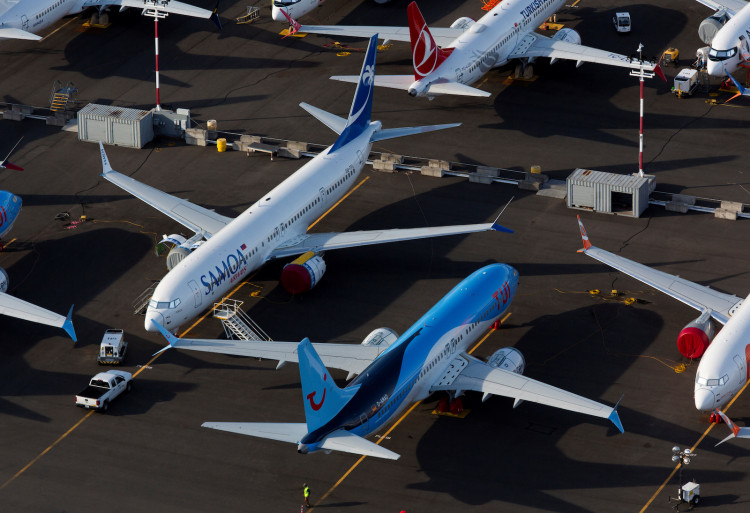In the latest setback for Boeing, the aerospace giant has encountered a manufacturing issue with the fuselages of its 737 jets, potentially impacting the delivery timeline for approximately 50 aircraft. This recent quality concern was identified by an employee at Spirit AeroSystems, a key supplier based in Wichita, Kansas, which manufactures a significant portion of the fuselages for Boeing's Max jets.
The issue, described by Boeing Commercial Airplanes CEO Stan Deal in a communication to employees, involves misdrilled holes in the fuselages, a problem not deemed an immediate safety concern but one necessitating rework on the affected undelivered planes. "While this potential condition is not an immediate safety issue and all 737s can continue operating safely, we currently believe we will have to perform rework on about 50 undelivered planes," Deal stated.
This revelation comes in the wake of an alarming incident on January 5, involving an Alaska Airlines 737 Max 9 flight. A door plug on the aircraft blew out shortly after takeoff from Portland, Oregon, leading to an emergency landing. The incident, which is under investigation by the National Transportation Safety Board (NTSB), alongside a separate inquiry by the Federal Aviation Administration (FAA) into Boeing and its suppliers' adherence to quality-control procedures, has raised further questions about the robustness of Boeing's manufacturing processes.
The FAA's decision to ground all Max 9s in the U.S. the day following the blowout, albeit temporarily, underscores the gravity of the situation. Although Alaska Airlines and United Airlines, the two U.S. carriers operating the Max 9, have started returning some aircraft to service, the scrutiny on Boeing's manufacturing quality has intensified.
Adding to Boeing's challenges is the recent withdrawal of a request for a safety exemption needed to certify a new model of the 737 Max airliner. This move, linked to concerns over part of the engine housing's ability to withstand overheating and potential detachment during flight, highlights the ongoing struggles Boeing faces in ensuring the reliability and safety of its aircraft.
The string of quality issues, coupled with supply chain challenges, has not only affected Boeing's reputation but also its financial performance. The company reported a $2.2 billion loss in 2023, extending its cumulative losses over the past five years to $26.7 billion. Delays in aircraft deliveries, including the 737 Max 7 and Max 10 models, have further strained relationships with major customers such as United Airlines and Southwest Airlines, both of which have expressed concerns over receiving their orders as initially promised.
Boeing's reliance on suppliers for key components of its aircraft has been a double-edged sword, offering cost efficiencies but also exposing the company to risks associated with substandard workmanship. Deal's acknowledgment of the need for stricter adherence to quality standards, both within Boeing and among its suppliers, reflects a commitment to addressing these issues head-on. However, the path to restoring confidence among customers and regulators remains fraught with challenges, as the aerospace giant works to overcome one of the most tumultuous periods in its history.






